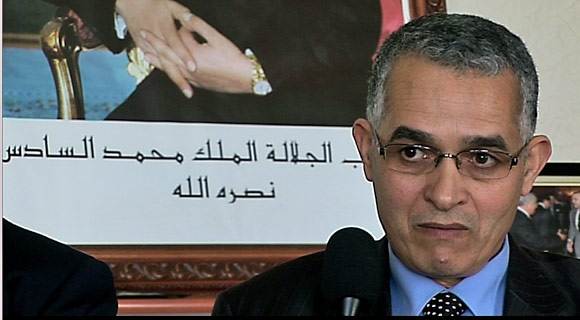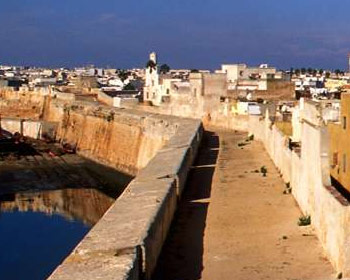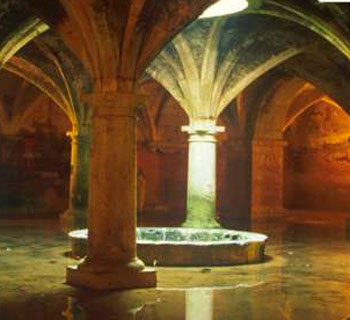University Development in Morocco: University of Chouaib Doukkali in Morocco
Mohammed Kaouam, President of Chouaib Doukkali University
Our challenge is to foresee the country’s future development. It is developing very quickly, and it is hard for universities to follow its pace. We believe that partnerships with European, Canadian and American universities will help us to do so.
Interview with Mohammed Kaouam, President of Chouaib Doukkali University

Can you tell us more about the Chouaib Doukkali University? What are your needs in terms of investment?
Morocco has been a big construction site for the 10 past years. It is developing in almost every sector. Of course, universities must accompany this development. As we are very close to Europe, we have implemented very important reforms in our educational system since 2000 to comply with European norms. For example, we have implemented the LMD system at the same time as France. These reforms aim at paving the way to universities’ autonomy in terms of methods, management, financial management and above all in terms of accompanying development. Our priority is to prepare bachelor and masters students for the professional world, with specialised courses in fields like energy, new technologies, human development, agriculture, logistics, offshoring – fields in which Morocco is developing and needs more experts. In the 80’s, we didn’t know the country’s needs in terms of education; but now we do. The Ministry and universities have entered in partnership with a view to train 10’000 new engineers each year since 2010. Universities are to follow the country’s fast development pace.
Our challenge is to foresee the country’s future development. It is developing very quickly, and it is hard for universities to follow its pace. We believe that partnerships with European, Canadian and American universities will help us to do so.
I started to work at the Chouaib Doukkali university in 2003, with a precise development plan in accordance with the region’s own development. There were only 2 university departments: the Faculty of Science and the Faculty of Arts and Human Sciences. There are now 5. Within 8 years, we have created an engineering school (in collaboration with the Office Chérifien des Phosphates), a trade and management school (in collaboration with the municipality), and a department specialised in economics, human resources management and marketing. These are meant to accompany the region as well as the country’s development.
From an international perspective, how does your university attract students and investors?
We are internationally-oriented. Many of our courses are in partnership with French and Belgian universities, and soon Canadian and American universities, which leads to a “double” diploma. 300 of our students are currently in France for 3 weeks. Many professors come from France and Belgium to teach in El Jadida. Universities are in the process of becoming more and more international. Many universities in France, Canada and the US are trying to gain a foothold outside the national soil.
Our challenge is to foresee the country’s future development. It is developing very quickly, and it is hard for universities to follow its pace. We believe that partnerships with European, Canadian and American universities will help us to do so.
We want our university to play an active role in development. We have created an “incubator” for startup companies within our Faculty of Science. The incubator’s purpose is to help innovative businesses to start up, particularly those involved with new technologies, biotechnology, etc.
The CRI tries to attract investment in specific sectors. What are these sectors, given the region’s potential and specific needs?
It is the universities’ role to create special courses and training for students as well as professionals willin g to adapt to the developing sectors. The National School of Trade and Management and our multidisciplinary faculty have launched new programmes made specifically to create qualified human resources.
g to adapt to the developing sectors. The National School of Trade and Management and our multidisciplinary faculty have launched new programmes made specifically to create qualified human resources.
These attract a high number of students. About 2 years ago, universities have entered into partnership with both the Ministry of National Education and the Ministry of Finance.
Through this contract, the university has committed to significantly improve the quality of courses and research. In return, the government has committed to allocate sufficient funding to each university involved in the contract as well as provide them with efficient managers. This has revived Moroccan universities and has pushed them ahead.
Do you have other partners? What about international partners?
We are in collaboration with international partners, particularly within the European Union. Projects are either financed by the European Union or by Moroccan entities such as the National Center for Research or the telecommunication services.
Our goal is to have universities sponsored by their region. One of the reforms that have been implemented consists in improving universities’ self-governance in order for them to take effective decisions to best accompany their region’s development. The university’s governing board includes the region’s top local councilors as well as representatives of the region’s professional sectors and regional industry. The region must also allocate a certain budget to the development of its universities.
What makes your university unique?
My friend has mentioned the 300km-long coast. Because of this, sea studies are a major department in our university. We are considered the top sea studies university by the Ministry. We are at the center of a network for sea studies in collaboration with Ifremer in France to carry out research on the seaside (research in fish farming, seaweed, subsoil, etc.).
We are also very involved with environmental matters. Our laboratories in this field are recognised nationally and internationally. Our university is considered excellent when it comes to these fields, as well as computer science.
Why should investors choose your region over big cities such as Casablanca?
It depends on what products the investor is involved with. If the products are to be exported, it is much more profitable to invest in El Jadida than in big cities. It even has a port. Another advantage we have is that we give a lot of importance to technical training. Projects of opening technology schools are under way. Sidi Ben Nour has allocated us a building plot for us to create a school there to train qualified technicians. We are also building a new campus that includes an engineer school, a multidisciplinary faculty, a professors’ club and student dormitories.
All our projects result from partnerships and collaboration. The National School of Trade and Management was launched in partnership with the municipality of El Jadida. They made adequate buildings available to us and we opened the school. The multidisciplinary faculty was launched in collaboration with the Regional Academy for Education, and the engineer school was opened in collaboration with the OCP (Office Chérifien des Phosphates), in accordance with the OCP’s needs.
The multidisciplinary faculty offers 7 bachelor’s degrees, all of them in partnership with foreign universities.
What is your dream for the region of Doukkala Abda in 5 years?
Morocco is changing significantly, however people sometimes have a prejudice against it. I hope that people – from France or Belgium for example – will soon, if they are asked to choose between Turkey and Morocco as a destination, choose Morocco.
Morocco is open and tolerant, and very close to Europe. I hope that European investors may come and visit Morocco in order to discover all the amazing opportunities it has to offer, in every sector: civil engineering, industry, education… absolutely every sector. It’s happening now: France and Spain are competing when it comes to investment in Morocco. But new investors are getting a foothold in the country: China, Canada, UK, Germany… And I am sure that within the next few years, the foreign investment rate in Morocco will catch up with that of Spain.